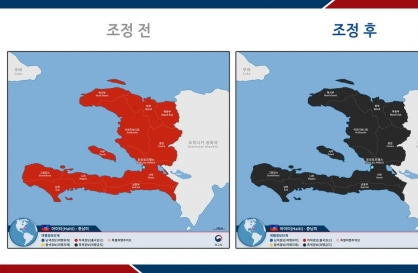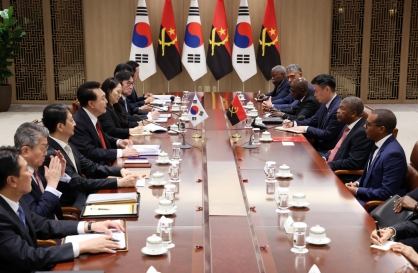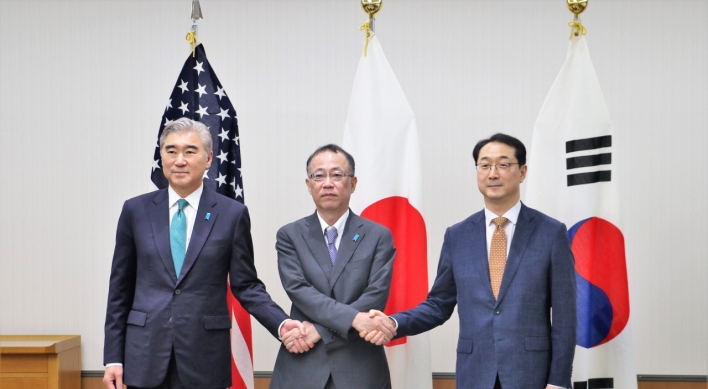[Contribution] Controversy over ‘same person’ designation by the KFTC
By Korea HeraldPublished : Nov. 18, 2021 - 17:00

By Myung-Soo Hong, Professor of Law, Myongji University
The trade ministers of South Korea and the US are meeting in Seoul for the first time in 10 years on Nov. 18, 2021. During the meeting, it is expected that various economic and trade related pending issues will be discussed. One of the issues which may be discussed is the Korea Fair Trade Commission’s ongoing review of the possibility of designating US corporations and individual US citizens as the “same person” (i.e., head of the corporation) of a business group under the Korean Monopoly Regulation and Fair Trade Law, or MRFTL.
Whether it is possible to designate a US corporation and/or a US citizen as the “same person” of a business group under the MRFTL has been a topic of controversy in Korea in the recent year, especially in light of US-Korea trade relations. In 2021, the KFTC designated S-Oil, GM Korea and Coupang Corp. as business groups under the MRFTL, and while ultimate governance management and control over the three business groups were found to be outside of Korea, the ultimate controlling companies in Korea were designated as the “same person” for each business group. By such designation, affiliates under the business group that are subject to the business group regulation were limited to Korean companies, consistent with the original intent of the MRFTL to regulate the domestic business group system.
Such position taken by the KFTC toward global companies to date is reasonable. However, the KFTC is currently conducting an outsourced research to amend the current system under which it is difficult to designate foreigners as the head of a business group, in preparation for the next business group designation scheduled for May 1, 2022. In this regard, designation of a foreign citizen as the “same person” requires careful consideration in various aspects.
In very exceptional cases where it is difficult to sufficiently identify the overall business control of domestic companies when the examination is limited to the domestic ultimate controlling entity (for example, if there is a case where all of the domestic affiliates can be examined in totality only when overseas business control is included in the overall scope), exceptional approaches may be considered. However, even in such cases, in order to ensure such designation is effective and there is legal stability, it should be implemented through introduction of a new regulation, rather than stretching application of an existing regulation.
At an academic debate session jointly held by the KFTC and the Korea Corporate Governance Service on Oct. 22, it was mentioned that the designation of the “same person” of a Korean American is possible in exceptional cases. From the regulatory perspective of restraining excessive domestic economic power concentration, there are differences which inevitably call for different application of regulations for Koreans and foreigners. However, the fact that such foreigners subject to the relevant regulations are of Korean-heritage should not be a factor diluting such differences. Such use of racial or ethnic indicators as a factor in this context would also open itself up to serious criticism.
If a US company or a US citizen is designated as the “same person,” issues regarding the violation of the Korea-US FTA may arise due to unfavorable and discriminatory treatment against US corporations and US investors. This would be the issue the US trade minister may focus on. Especially, considering there are a number of pending critical issues, such as the US government’s request to domestic semiconductor companies to disclose information on the semiconductor supply chain, the contemplated changes to the designation system under the MRFTL without thoroughly reviewing the enforceability and effectiveness, should warrant a more cautious approach and scrutiny.
-------------------------------------------------------------
The trade ministers of South Korea and the US are meeting in Seoul for the first time in 10 years on Nov. 18, 2021. During the meeting, it is expected that various economic and trade related pending issues will be discussed. One of the issues which may be discussed is the Korea Fair Trade Commission’s ongoing review of the possibility of designating US corporations and individual US citizens as the “same person” (i.e., head of the corporation) of a business group under the Korean Monopoly Regulation and Fair Trade Law, or MRFTL.
Whether it is possible to designate a US corporation and/or a US citizen as the “same person” of a business group under the MRFTL has been a topic of controversy in Korea in the recent year, especially in light of US-Korea trade relations. In 2021, the KFTC designated S-Oil, GM Korea and Coupang Corp. as business groups under the MRFTL, and while ultimate governance management and control over the three business groups were found to be outside of Korea, the ultimate controlling companies in Korea were designated as the “same person” for each business group. By such designation, affiliates under the business group that are subject to the business group regulation were limited to Korean companies, consistent with the original intent of the MRFTL to regulate the domestic business group system.
Such position taken by the KFTC toward global companies to date is reasonable. However, the KFTC is currently conducting an outsourced research to amend the current system under which it is difficult to designate foreigners as the head of a business group, in preparation for the next business group designation scheduled for May 1, 2022. In this regard, designation of a foreign citizen as the “same person” requires careful consideration in various aspects.
In very exceptional cases where it is difficult to sufficiently identify the overall business control of domestic companies when the examination is limited to the domestic ultimate controlling entity (for example, if there is a case where all of the domestic affiliates can be examined in totality only when overseas business control is included in the overall scope), exceptional approaches may be considered. However, even in such cases, in order to ensure such designation is effective and there is legal stability, it should be implemented through introduction of a new regulation, rather than stretching application of an existing regulation.
At an academic debate session jointly held by the KFTC and the Korea Corporate Governance Service on Oct. 22, it was mentioned that the designation of the “same person” of a Korean American is possible in exceptional cases. From the regulatory perspective of restraining excessive domestic economic power concentration, there are differences which inevitably call for different application of regulations for Koreans and foreigners. However, the fact that such foreigners subject to the relevant regulations are of Korean-heritage should not be a factor diluting such differences. Such use of racial or ethnic indicators as a factor in this context would also open itself up to serious criticism.
If a US company or a US citizen is designated as the “same person,” issues regarding the violation of the Korea-US FTA may arise due to unfavorable and discriminatory treatment against US corporations and US investors. This would be the issue the US trade minister may focus on. Especially, considering there are a number of pending critical issues, such as the US government’s request to domestic semiconductor companies to disclose information on the semiconductor supply chain, the contemplated changes to the designation system under the MRFTL without thoroughly reviewing the enforceability and effectiveness, should warrant a more cautious approach and scrutiny.
-------------------------------------------------------------
-
Articles by Korea Herald



















